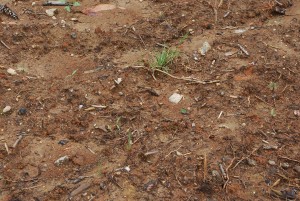The pH is a measure of how acidic (below 7.0) or alkaline (above pH 7.0) the garden soil may be. Acid-loving plants such as azaleas, rhododendrons, dwarf conifers and blueberries prefer soil pH below 6.0. An alkaline pH benefits growing some dianthus, ferns and lenten roses. Also, some soil nutrients are less available to plants above pH 7.0.
Soil test early, at least once every 4-5 years. Separately test lawn, vegetable, fruit, and flower garden areas. If you grow a large number of roses, test this area separately.
Randomly sample 4-5 areas of each separate garden bed. The soil should be aired dry for several days and collect enough to fill a large 5 oz. baby food jar.
The local Extension office or full service garden center now in mid-winter before the rush of spring gardeners begin tilling. The cost is very modest, usually $8-12 per sample in most states.


 Posted in
Posted in 
